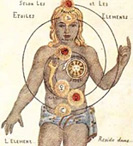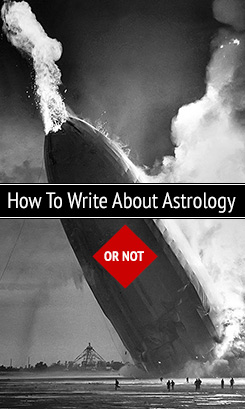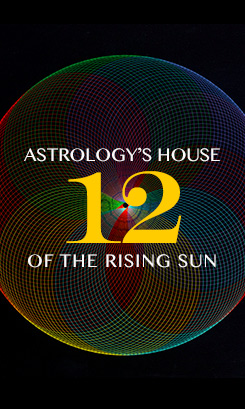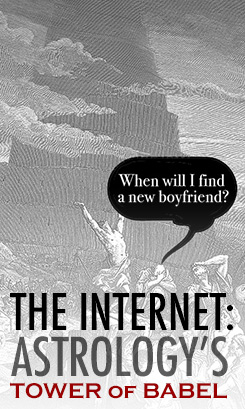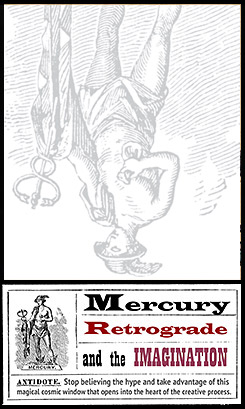My New eBook Skywriter: Notes on Modern Astrology Is Ready to Download Today!

![]()
![]()
![]()
When I launched AstroInquiry fourteen years ago I took an aim that I would create content that had substance, offered insights and had meat on the bone.
If you’re a reader who has grown bored with the vague, go-nowhere nature of most astrological scribing — New Age jargon cloaked in astrological cliches — then my new book — a collection of some of the most popular essays from AstroInquiry, will interest you.
• Would you like a better understanding of Mercury retrograde — both the astronomical phenomenon and the astrological interpretations of this annual event? Then you’ll enjoy the chapter The Truth About Mercury Retrograde. Find new ways to harness the rich imaginal realm within your unconscious, images that are heightened during the Mercury retrograde cycle. Who cares about lost car keys when the heart of your creative nature beckons?
• How about love? Without question, relationships — especially romance-based — offer great potential for psychological maturity. To understand love is to foster compassion and generosity as well as the excitement of deeper intimacy and sexual communion. You’ll find much to explore in the chapter Secrets of the Heart: Love is an Action Not A Feeling. The chapter opens with one of Rumi’s most beguiling poems and then moves forward from that literary close reading into the mysteries of human relating. A must for the intrepid Hero and Heroine of the Heart. Read more
The Mountain Astrologer Reviews Skywriter
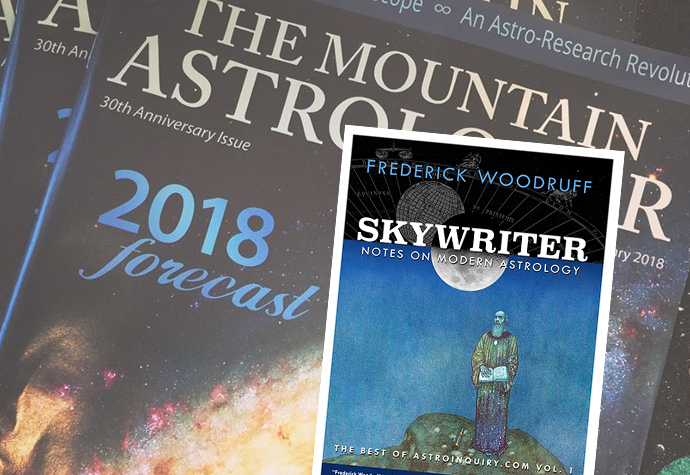
It was an honor to have my new book Skywriter: Notes on Modern Astrology reveiwed by Mary Plumb, The Mountain Astrologer‘s resident book maven. Please consider ordering a subscription to TMA this Christmas season — for yourself or as a gift for someone special. Here is Mary’s review:
“I have been a fan of Frederick Woodruff since I found his Astroinquiry website. This eBook, subtitled The Best of Astroinquiry.com, Vol. 1, is a collection of some of his most popular essays from the past ten years.
Woodruff is a longtime astrologer — practicing “what would be considered psychological-spiritual astrology” — and although he identifies himself as a “skeptical mystic,” my best attempt at defining his style is that he writes as a post-intellectual, post-conceptual, back-to-the-precious-human-body, direct-personal-experience kind of guy.
Effectively communicating with clients, he says “doesn’t need a lot of highfalutin intellectualizing or contemplation or meditation. All you need do is sense yourself, your am-ness, your first-personal giveness and there you are.” His integration of the teachings that he has studied — e.g., Gurdjieff, Chogyam Trungpa, Carl Jung — informs his work and a subtext to self-inquiry or self-awareness (and humor) runs quite naturally throughout these essays.
The essays herein include “Create Your Own Archetype and Call it You,” “Pluto in Capricorn: Death is the New Black,” “Make Facebook Your Slave — Some Tips,” “Depression and Solar Consciousness,” and “Outer Planets and the Nostalgia for Samsara.”
Woodruff’s advice to aspiring astrological writers is spot-on and funny as can be: “Please consider how you employ the words ‘transformation,’ ‘changes,’ ‘challenging’ and ‘archetype’ in your prose. Changes and challenging transformations have been going down on the planet since the first cavewoman read Clan of the Cave Bear, so saying that a transit is going to bring ‘big changes’ or ‘challenge’ me is like telling me that I will finish half a bottle of wine with dinner tonight. This is not news.”
He includes select words of poets, teachers, and mystics. About one such entry, he writes: “Rumi composed a small eruption of a poem…” Frederick Woodruff does something similar with many moments in his writing, as he takes readers through passages and thoughts that provoke and inform.”
— Mary Plumb






